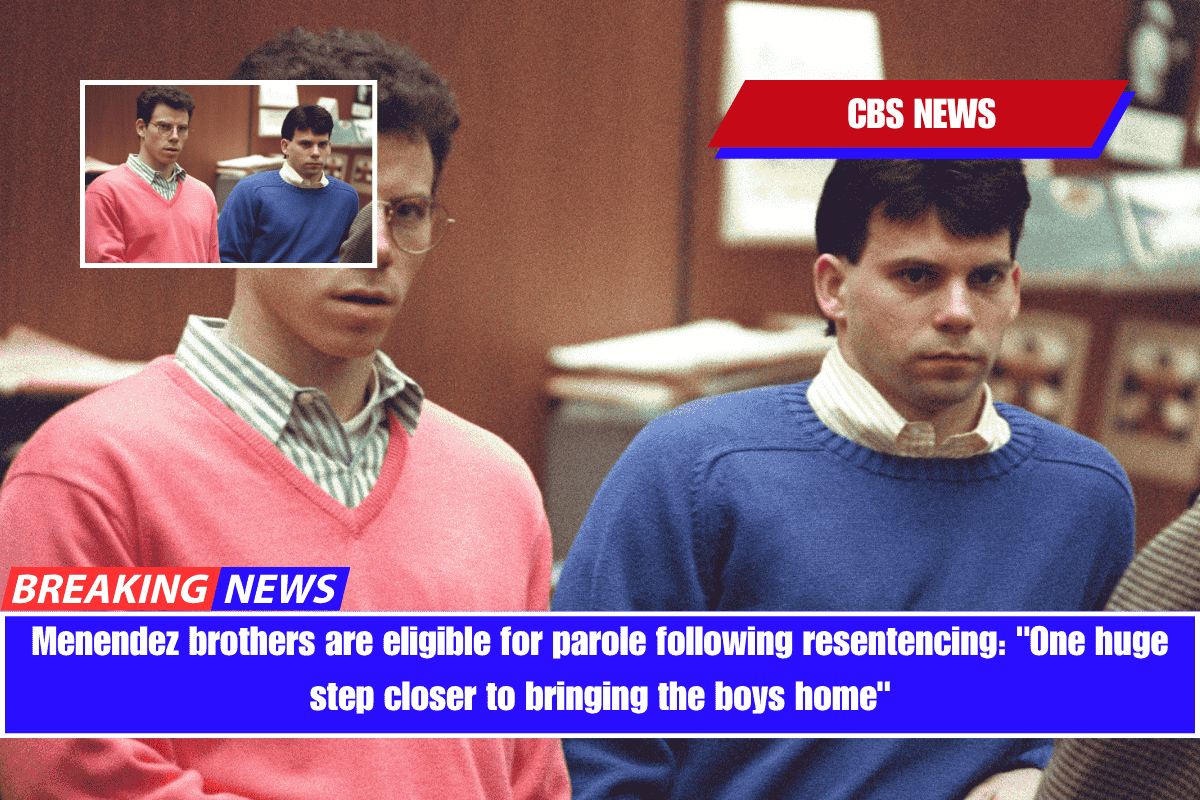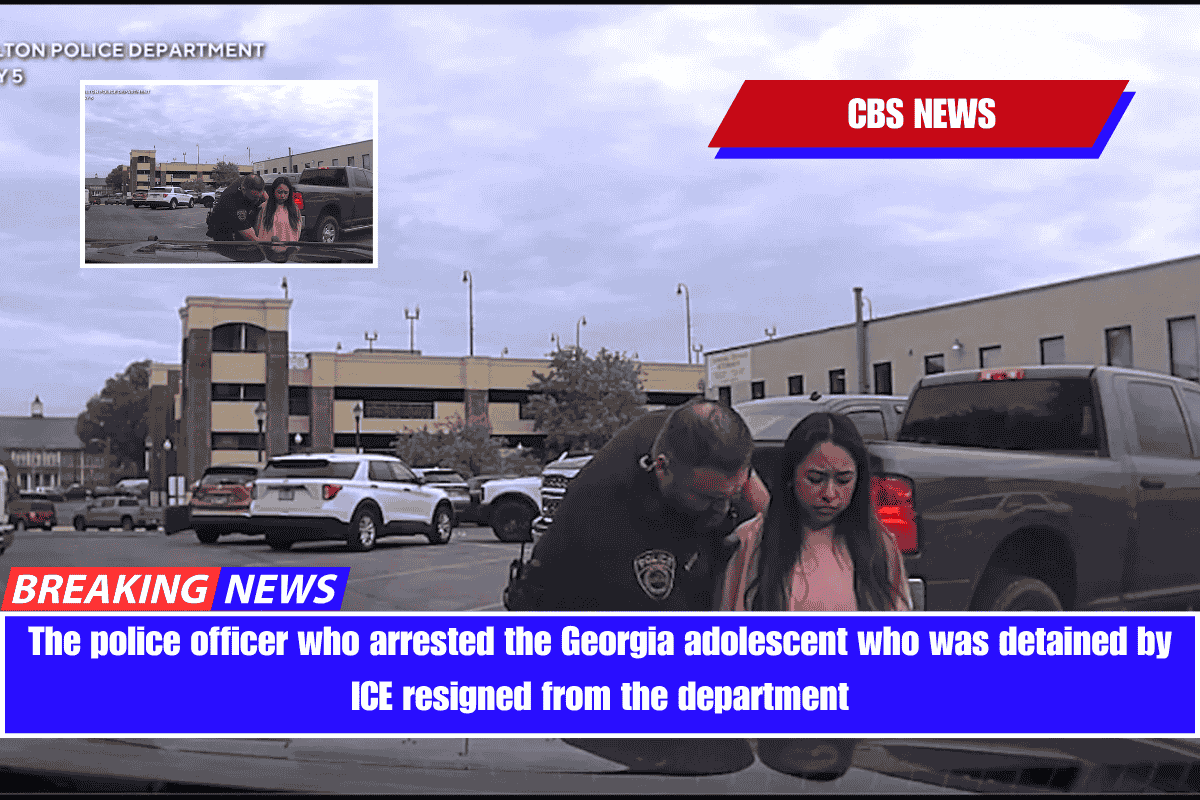The Menendez brothers have been resentenced to 50 years to life in prison, allowing them to be paroled after serving more than three decades in prison for the murder of their parents.
Erik and Lyle Menendez were serving life sentences without the possibility of parole for the 1989 murders of their parents, Kitty and Jose Menendez, in their Beverly Hills home. The brothers claimed they acted in self-defense following years of alleged physical, sexual, and emotional abuse by their parents.
If approved, the case will proceed to the California Board of Parole Hearings before being sent to the governor’s office.
Mark Geragos, the brothers’ attorney, thanked Judge Michael Jesic for his decision.
“I want to hat tip Judge Jesic, who was able to cancel out all the noise surrounding this, all of the grandstanding, all of the political back-and-forth, and he did what the code section said he should do, he did what justice said should happen, he struck the special circumstance and sentenced them to 50-to-life,” said the attorney general. “The resentencing has happened.”
He described the decision as one that “will reverberate in the criminal justice system.”
“We live in a completely different world now,” Geragos said. “One of the things I think is important is to recognize that, like the legislature has done, we have evolved — this is not the 90s anymore.”
Erik and Lyle Menendez’s family celebrated the judge’s decision after 35 years in prison.
“I’m so glad I wore waterproof mascara, as I am feeling. “I’ve been crying all day,” cousin Annamaria Baralt explained. “Mark Geragos and Cliff Gardner, thank you very much. You have restored hope to this family.”
Los Angeles County District Attorney Nathan Hochman, who has repeatedly stated his opposition to resentencing the brothers, called Jesic’s decision “monumental” and had “significant implications for the families involved, the community, and the principles of justice.”
“This case, like all cases — especially those that captivate the public — must be viewed with a critical eye,” Hochman told CNN. “Our opposition and analysis ensured that the Court had a full and accurate record of the facts. Justice should never be swayed by spectacle.
The road to resentencing
Erik and Lyle Menendez’s appellate attorneys filed a resentencing petition in 2023, claiming that new evidence corroborated the brothers’ abuse allegations and supported their request for a shorter sentence, potentially leading to their release or parole consideration.
“Two years ago, Cliff and I were talking about another case, and he mentioned the Menendez brothers,” Geragos said, referring to Cliff Gardner, the appellate attorney who originally filed the resentencing petition in 2023. “We decided to do it. Now we can see the pot at the end of the rainbow and their freedom.”
Before appearing in court on Tuesday, Hochman reiterated the prosecution’s position that the brothers should not be released at all, just not yet. He claimed the Menendez brothers murdered their parents in a “methodical way” akin to a “mafia hit.”
Judge Jesic was scheduled to hear a recusal motion filed by appellate attorney Mark Geragos in April, seeking to have Hochman and his office removed from the case. In court documents, Geragos claimed that “a conflict of interest would render it likely that the defendants will receive neither a fair hearing nor fair treatment through all related proceedings.”
However, Geragos withdrew the request before the hearing on Friday, citing a desire to avoid further delays in the resentencing process.
On Friday, Hochman attempted to withdraw former Los Angeles County District Attorney George Gascón’s 2024 resentencing motion in support of Erik and Lyle Menendez, claiming that a parole board’s comprehensive risk assessment of the brothers should be considered when their petition is heard. Hochman claimed that the brothers had not accepted full responsibility for their crimes.
“Our office’s motions to withdraw the resentencing motion filed by the previous administration ensured that the Court was presented with all the facts before making such a consequential decision,” Hochman said shortly afterwards.
California Governor Gavin Newsom ordered the risk assessment earlier this year as part of the Menendez brothers’ clemency petition.
In court Friday, Hochman stated that the board “determined that each of the Menendez brothers constituted a moderate risk of violence, which was higher than the prior determinations of low risk of violence.” He stated that the report cited specific actions taken by Erik and Lyle Menendez to support the determination, including an incident in January in which Erik Menendez was allegedly found with an illegally brought cell phone into prison.
Geragos argued that risk assessment should be prohibited in resentencing proceedings, citing the parole board’s policy against psychologists testifying in hearings, including resentencing hearings.
The state parole board will hold separate hearings for Erik and Lyle Menendez on June 13. The board will then send final reports to Newsom, who will decide whether the brothers should be granted clemency.
The brothers participated in the resentencing hearing virtually from the Richard J. Donovan Correctional Facility in San Diego, where they are both incarcerated.
During a court recess, Geragos told reporters that the Mendez brothers’ family members are unanimous in their belief that they should be released.
He also stated that the resentencing hearing is about redemption, not relitigating the facts of the crime, as he accused the DA’s office of doing. Geragos and his team are requesting that the brothers be released without a parole hearing by reducing their original sentence.
“I’m hopeful and glad we’re one huge step closer to bringing the boys home,” Geragos told the crowd.
What was the new evidence in the Menendez brothers’ resentencing petition?
The brothers’ cousin, Baralt, was the first witness to testify at Tuesday’s resentencing hearing. She took the stand after Jesic explained the resentencing law, which states that unless a super strike occurs, the brothers will be resentenced.
She stated that she has forgiven the brothers and believes they are different men than the boys who committed the crimes. She added that if they are released, she expects the brothers to advocate for victims of sexual abuse and childhood trauma.
Deputy District Attorney Habib Balian cross-examined Baralt on behalf of the prosecution. He asked her if they had ever admitted to any of the alleged lies they told during their initial trial, such as forcing people to testify falsely, and she said no, they had not discussed those details.
Baralt has long advocated for the Menendez brothers’ release, attending several demonstrations, including one outside Hochman’s office in March.
Who testified at the Menendez brothers’ resentencing hearing?
Tamara Goodell and Diane Hernandez, two of the Menendez brothers’ cousins, testified alongside Baralt on Tuesday.
Goodell discussed some of the projects the brothers have undertaken while incarcerated, such as Lyle’s Greenspace Project and Erik’s work to provide hospice care to the aging inmates.
The fourth witness, former judge Jonathan Colby, who described himself as tough on crime, claimed that the brothers helped him change his mind about inmate rehabilitation. He claims that in the past, he had never written a declaration or testified for another inmate, but after meeting them while doing outreach work with his dog Gracie, he hopes to help educate other judges.
Anerae Brown, an ex-inmate sentenced to death row, also gave testimony on Tuesday. He discussed his relationship with the brothers, who he claims helped him earn parole after 26 years in prison.
“As a life prisoner with 31-to-life, becoming a youthful offender, seeing the laws change and ultimately being free … I can assure everyone here that the brothers will do a great job when they get to board,” said the parolee.
Brown joined the brothers’ family following their resentencing decision.
“I’m very proud of them for continuing in this way to lead,” Brown told the crowd. “The fact that they pursued so many different rehabilitative possibilities, that they instituted so many different programs and made it so far is going to produce a sort of hope in a hopeless environment.”


















Leave a Reply